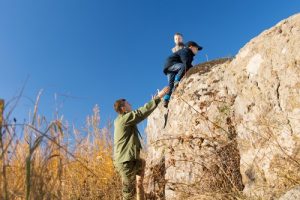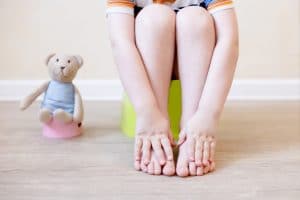
What is risk-taking all about?
Luckily, there is some good research out there to help understand kids’ seemingly innate need for risk.
A recent analysis of 21 studies of this topic revealed some interesting results. Kids who engaged in more “risky” play were found to be more active, and perhaps most interesting, were more socially and psychologically healthy. They also found kids involved in risky play had no higher rate of injury than other children. The “risky” play identified by the researchers involved activities that included playing at heights, playing with potentially dangerous items (e.g., water or fire), going fast, and rough-and-tumble play.
With these findings in hand, the researchers are now trying to figure out why risky play seems to offer such benefits. They theorise that much of the risky play helps children develop a strong sense of their own body, how it works in the world, and its limits. This may affect their psychological development as well. If parents protect them from unreasonable risks, but offer them some leeway in regards to tolerable risk, then the kids come to understand that the parents trust the child’s ability to keep themselves safe (at least to a point).
One researcher describes it this way,
“And though it may seem counterintuitive that children given more leeway don’t seem to experience more injuries, other work has found similar trends. If a child feels confident enough to get up high, that’s probably because they feel confident at that height and probably aren’t going to fall.”
Another way to think about this issue, is not just the physical aspect, but the psychological part too. For a child, risk-taking is in some way a form of stress. We tend to think of stress as a bad thing to be avoided, but in a child’s development stress is expected.
The stress that comes with normal developmental stages or changes is what our children use to propel them to the next level. As psychological researcher Michael Rutter points out in his studies on resilience, “children need some stress in their lives, so they can learn to cope with it. Development involves both change and challenge and also continuity. So to see the norm as stability is wrong.” The typical process of development requires some amount of stress.
Seen in this light, risk-taking is really helping to train a child’s body and brain to cope with stress. What a wonderful innate mechanism we are born with! By repeatedly coping with small stresses of risk and development, our children learn better and better coping skills. Hopefully by adulthood they will have the coping skills needed to deal with adult challenges.
If you try to protect your child from risk and stress, they will inevitably be hampered by it. This is what we see in the compelling research coming out on the destructive effects of “helicopter parenting.” Although this research has yet to prove a causal link, the correlations between hovering, overly intrusive parenting and poor outcomes like depression, anxiety, and lack of self-reliance are strong enough to make us pay attention. In its extreme forms, helicopter parenting prevents the child from experiencing risk or stress in almost any form. When this occurs, the child becomes crippled by a lack of coping skills and may feel he/she cannot accomplish anything on their own.
The key to coping with stress, in all its forms, is finding coping mechanisms that work for the individual. What Rutter has found in his research is that relationships are one of the most influential factors in dealing with stress. In other words, a strong but dynamic relationship between parents and children can make all the difference.
It reminds me of a quote by parent, author and resiliency specialist, Maggie Dent,
“Childhood is a state of mind which ends the moment a puddle is first viewed as an obstacle instead of an opportunity.”













